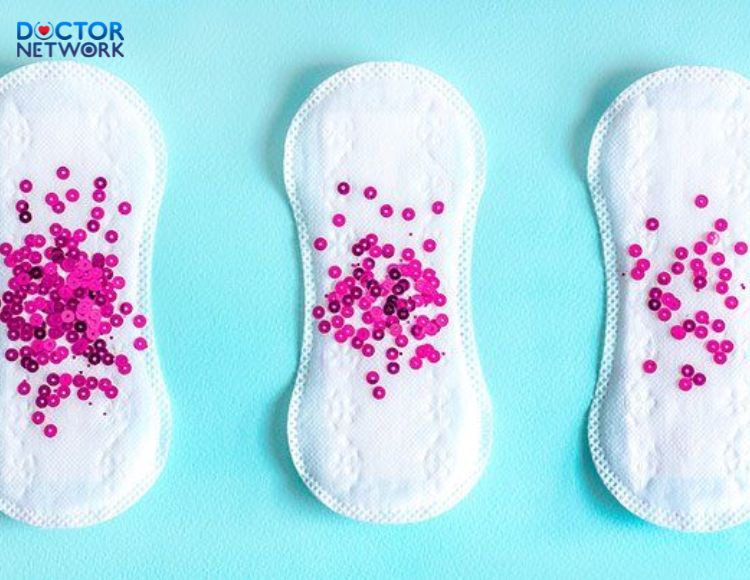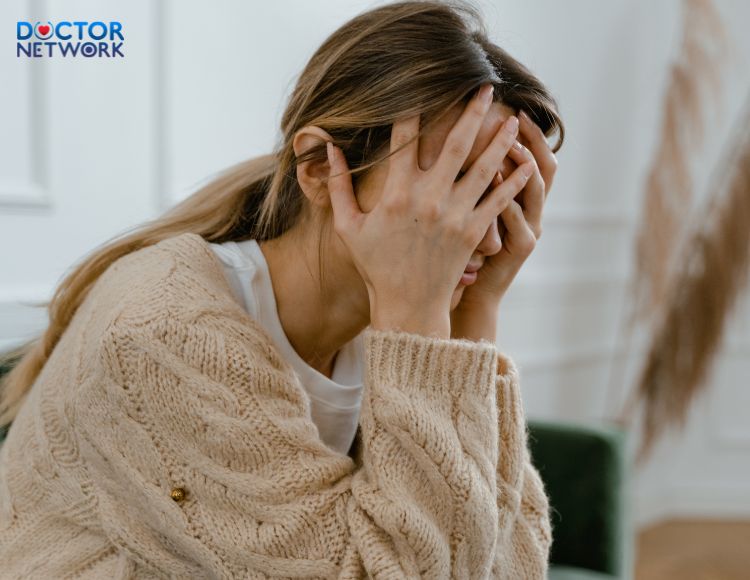Menstrual cycles are a fundamental aspect of women’s reproductive health, yet they can vary significantly from person to person and even month to month. A light period, characterized by reduced menstrual flow or shorter duration, is a common occurrence that often raises questions and concerns among women. This comprehensive guide explores the normalcy of light periods, potential causes, “Is It Okay to Have a Light Period“, and when to seek medical advice. We’ll delve into the physiological factors influencing menstrual flow, lifestyle impacts, and expert insights to help you better understand your menstrual health.
What Defines a Light Period?
A light period, also known as hypomenorrhea in medical terms, is typically characterized by:
- Reduced menstrual flow (less than 30 ml per cycle)
- Shorter duration (less than 3 days)
- Minimal need for menstrual products
It’s crucial to understand that menstrual flow exists on a spectrum, and what’s considered “light” can vary among individuals.

Is it okay to have a light period?
Menstrual cycle variations are common and often perfectly normal. A light period can be considered typical if:
- It occurs consistently without sudden changes
- It’s not accompanied by unusual symptoms or pain
- It doesn’t interfere with your daily activities or quality of life
However, sudden changes in menstrual flow or persistent light periods may warrant medical attention, especially if accompanied by other symptoms.
Factors Influencing Menstrual Flow
Several factors can contribute to lighter periods:
- Hormonal changes
- Age and life stage (e.g., perimenopause)
- Body weight and composition
- Stress levels
- Exercise habits
- Contraceptive use
- Certain medical conditions
Is It Okay to Have a Light Period? – Stress and prolonged tension can cause scanty menstruation
Understanding these influences can help you contextualize changes in your menstrual flow.
When to Seek Medical Advice
While light periods are often normal, certain situations call for professional medical evaluation:
- Sudden changes in menstrual flow or pattern
- Missed periods (amenorrhea)
- Excessive pain or cramping
- Unusual bleeding between periods
- Difficulty conceiving
- Symptoms of anemia (fatigue, weakness, shortness of breath)
Consulting a gynecologist or reproductive health specialist can help identify any underlying issues and ensure optimal menstrual health.
Potential Causes of Light Periods
Light periods can result from various factors, including:
Hormonal Imbalances
Fluctuations in estrogen and progesterone levels can significantly impact menstrual flow. Conditions like polycystic ovary syndrome (PCOS) or thyroid disorders may lead to lighter periods.

Track your period or keep a journal of your cycle, menstrual flow, and symptoms
Lifestyle Factors
Extreme weight loss, intense physical training, or high stress levels can disrupt the hormonal balance and result in lighter menstruation.
Contraceptive Use
Hormonal birth control methods, such as oral contraceptives or intrauterine devices (IUDs), often lead to lighter periods as a side effect.
Age-Related Changes
Perimenopause, the transitional phase before menopause, is often characterized by irregular and lighter periods.
Medical Conditions
Certain health issues, such as uterine scarring or Asherman’s syndrome, can cause lighter than normal menstrual flow.
Managing Light Periods
If you’re experiencing light periods and are concerned, consider these management strategies:
- Track your menstrual cycle: Use a period tracking app or journal to monitor changes.
- Maintain a healthy lifestyle: Balance diet, exercise, and stress management.
- Consider contraceptive adjustments: Discuss options with your healthcare provider.
- Address underlying health issues: Treat any diagnosed medical conditions.
- Supplement wisely: Consider iron supplements if recommended by your doctor.
Remember, what’s “normal” varies from person to person. The key is understanding your own menstrual patterns and addressing any significant changes promptly.
Conclusion: Embracing Menstrual Health Awareness
Light periods, while often a source of concern, are frequently a normal variation in menstrual health. By understanding the factors influencing menstrual flow and recognizing when to seek medical advice, you can take control of your reproductive health with confidence. Remember that every woman’s menstrual experience is unique, and what matters most is how your cycle affects your overall well-being and quality of life.
If you have persistent concerns about your menstrual flow or experience sudden changes, don’t hesitate to consult a healthcare professional. They can provide personalized advice and ensure that your reproductive health is in optimal condition. Embrace your menstrual health journey with knowledge and empower yourself to make informed decisions about your body and well-being.
5 frequently asked questions related to the topic “Is it okay to have a light period?”
Can stress cause lighter periods?
Answer: Yes, stress can indeed cause lighter periods. Stress activates the hypothalamic-pituitary-adrenal (HPA) axis, which can disrupt the delicate balance of reproductive hormones like estrogen and progesterone. This hormonal imbalance may lead to changes in menstrual flow, including lighter periods. Chronic stress can even cause anovulation (lack of ovulation), resulting in very light or missed periods. To manage stress-related menstrual changes, consider stress-reduction techniques such as meditation, regular exercise, or cognitive behavioral therapy.
Does a light period mean I’m less fertile?
Answer: A light period doesn’t necessarily indicate reduced fertility. Fertility is more closely linked to ovulation than to the heaviness of menstrual flow. However, if light periods are a new development or are accompanied by irregular cycles, it could signify hormonal imbalances or conditions like Polycystic Ovary Syndrome (PCOS), which can affect fertility. If you’re concerned about your fertility, track your ovulation using methods like basal body temperature charting or ovulation predictor kits. Consult a reproductive endocrinologist if you’re having difficulty conceiving, as they can perform tests to assess your ovarian reserve and overall reproductive health.
Can certain medications cause lighter periods?
Answer: Yes, various medications can lead to lighter periods. Hormonal contraceptives, including birth control pills, patches, and intrauterine devices (IUDs), often cause lighter menstrual flow as a side effect. This is because they alter the hormonal environment in the body, typically reducing the build-up of the endometrial lining. Other medications that may affect menstrual flow include:
- Antidepressants (especially SSRIs)
- Blood thinners (anticoagulants)
- Thyroid medications
- Certain antipsychotics
If you notice changes in your menstrual flow after starting a new medication, consult your healthcare provider to discuss potential alternatives or adjustments.
Is it normal for periods to get lighter with age?
Answer: Yes, it’s common for periods to become lighter as women age, particularly during perimenopause. Perimenopause, the transitional phase before menopause, typically begins in a woman’s 40s and can last several years. During this time, fluctuating estrogen and progesterone levels can cause various menstrual changes, including lighter flow. This is due to the gradual decline in ovarian function and less consistent ovulation. However, sudden changes in menstrual flow at any age should be evaluated by a gynecologist to rule out other potential causes like endometrial atrophy or hormonal imbalances.
Can a very light period still be considered a “real” period?
Answer: Yes, a very light period can still be considered a “real” period, provided it occurs as part of a regular menstrual cycle. The key factor is whether ovulation has occurred. A true period, regardless of its heaviness, results from the shedding of the endometrial lining after an egg is released and not fertilized. However, some women may experience such light bleeding that it’s difficult to distinguish from spotting. If you’re unsure whether your light bleeding constitutes a period, consider these factors:
- Timing: Does it occur at regular intervals?
- Duration: Does it last at least a couple of days?
- Accompanying symptoms: Do you experience other premenstrual symptoms?
If you’re concerned about the lightness of your periods, especially if it’s a new development, consult with a gynecologist. They can perform tests to confirm ovulation and rule out any underlying conditions that might be affecting your menstrual cycle.
The above article has provided information about “Is it okay to have a light period?” and related knowledge. Hopefully the article will be useful to you.
References:
Is it normal for a period to last 1 day or 2 days? What is the cause? – Vinmecvinmec·1
Kiểm Duyệt Nội Dung
More than 10 years of marketing communications experience in the medical and health field.
Successfully deployed marketing communication activities, content development and social networking channels for hospital partners, clinics, doctors and medical professionals across the country.
More than 6 years of experience in organizing and producing leading prestigious medical programs in Vietnam, in collaboration with Ho Chi Minh City Television (HTV). Typical programs include Nhật Ký Blouse Trắng, Bác Sĩ Nói Gì, Alo Bác Sĩ Nghe, Nhật Ký Hạnh Phúc, Vui Khỏe Cùng Con, Bác Sỹ Mẹ, v.v.
Comprehensive cooperation with hundreds of hospitals and clinics, thousands of doctors and medical experts to join hands in building a medical content and service platform on the Doctor Network application.


























